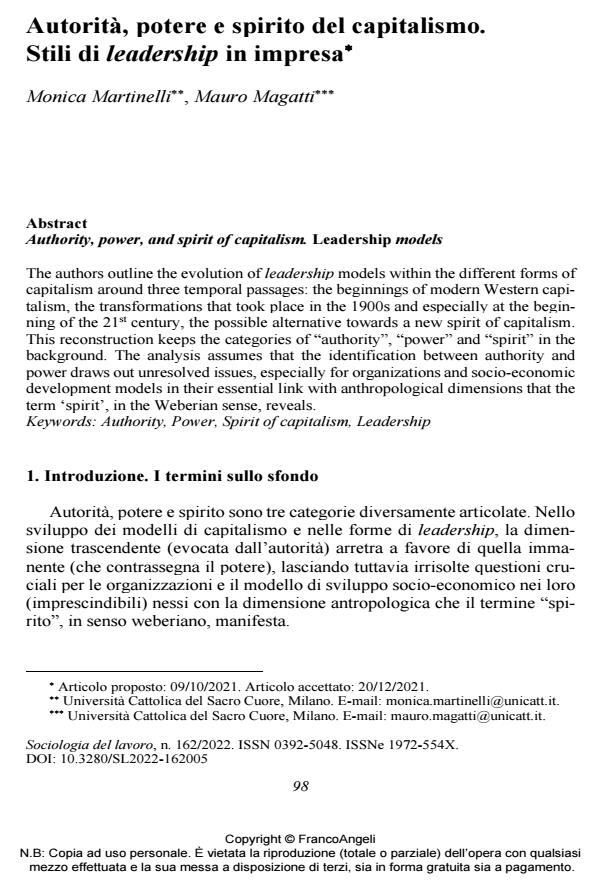Authority, power, and spirit of capitalism. Leadership models
Journal title SOCIOLOGIA DEL LAVORO
Author/s Monica Martinelli, Mauro Magatti
Publishing Year 2022 Issue 2022/162
Language Italian Pages 23 P. 98-120 File size 230 KB
DOI 10.3280/SL2022-162005
DOI is like a bar code for intellectual property: to have more infomation
click here
Below, you can see the article first page
If you want to buy this article in PDF format, you can do it, following the instructions to buy download credits

FrancoAngeli is member of Publishers International Linking Association, Inc (PILA), a not-for-profit association which run the CrossRef service enabling links to and from online scholarly content.
The authors outline the evolution of leadership models within the different forms of capitalism around three temporal passages: the beginnings of modern Western capitalism, the transformations that took place in the 1900s and especially at the beginning of the 21st century, the possible alternative towards a new spirit of capi-talism. This reconstruction keeps the categories of "authority", "power" and "spir-it" in the background. The analysis assumes that the identification between au-thority and power draws out unresolved issues, especially for organizations and socio-economic development models in their essential link with anthropological dimensions that the term ‘spirit’, in the Weberian sense, reveals.
Keywords: Authority, Power, Spirit of capitalism, Leadership
- The Dual Nature of Authority and Its Generative Capacity Monica Martinelli, in International Journal of Humanities and Social Science /2024
DOI: 10.30845/ijhss.v14p25
Monica Martinelli, Mauro Magatti, Autorità, potere e spirito del capitalismo. Stili di leadership in impresa in "SOCIOLOGIA DEL LAVORO " 162/2022, pp 98-120, DOI: 10.3280/SL2022-162005